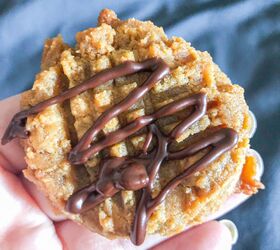

Eating more than the recommended amount will also increase fat and sodium intake, which does not benefit the heart.

However, as peanut butter is high in calories, it is crucial that a person limits their intake if they do not want to put on weight. Research also suggests that including 46 g per day of peanuts or peanut butter into an American Diabetes Association (ADA) diet plan for 6 months could benefit the heart, improve blood lipid profiles, and control weight for people with diabetes. The researchers recommend peanuts in particular as a cost-effective way to improve heart health for some people. Peanut butter has a similar ratio to olive oil - which is also known as a heart-healthy option.Ī high intake of nuts may have links to a reduced risk of mortality from heart disease or other causes. The proportion of unsaturated fats (PUFAs and MUFAs) to saturated fats in the diet plays a particularly important role in heart health. Peanut butter contains many nutrients that can improve heart health, including: This study compared the dietary and lifestyle data for over 373,000 people from 10 European countries over 5 years.Įarlier research based on data gathered from over 51,000 women suggested that those who ate nuts twice weekly or more experienced slightly less weight gain over an 8-year period than women who rarely ate nuts. This may be because peanuts improve satiety, which is the feeling of fullness, thanks to their protein, fat, and fiber content.Ī 2018 study suggests that eating nuts, including peanuts, reduces a person’s risk of being overweight or obese.

Several studies suggest that eating peanuts and other nuts can help people maintain their weight, or even help with weight loss. It also contains 152 mg of sodium, which is 10.1 percent of an adult’s ideal daily upper intake of sodium of 1,500 mg.Įating peanut butter in moderation and as part of an overall healthful diet may provide the following benefits: 1. People should aim for less than 13 g of saturated fat per day. Peanut butter is high in calories, saturated fats, and sodium.Įach serving contains 3.05 g of saturated fats, which is 23.5 percent of the American Heart Association’s maximum recommended daily intake of saturated fat for those consuming 2,000 calories a day. However, there are also nutritional disadvantages if a person eats more than the recommended amount of peanut butter. Vitamin B-6 plays a role in over 100 enzyme reactions in the body and may be necessary for heart and immune system health. With 0.17 g of vitamin B-6 per serving, peanut butter provides almost 14 percent of an adult’s RDA of 1.3 mg. Niacin benefits digestion and nerve function and helps produce energy. Peanut butter contains 4.21 mg of niacin per serving, which makes a useful contribution towards a person’s recommended intake of 14 to 16 mg. Zinc is necessary for immunity, protein synthesis, and DNA formation. This is 7.7 percent of the recommended daily intake of 11 mg for men, and 10.6 percent of the RDA of 8 mg for women. A serving of peanut butter provides 0.85 mg of zinc. Phosphorus helps the body to build healthy cells and bones and helps cells to produce energy. Each serving contains 107 mg of phosphorus, which is about 15.3 percent of the RDA of 700 mg for adults. Magnesium is essential for health, playing a role in over 300 chemical processes in the body. With 57 milligrams (mg) of magnesium, each serving helps towards the RDA of 400–420 mg in men and 310–320 in women. This counts toward the recommended dietary allowances (RDA) for women of 46 g and 56 g for men, which varies by age and activity level. Peanut butter contains 7.02 grams (g) of protein per 2-tbsp serving. Most notably, each 2-tablespoon (tbsp) serving of smooth peanut butter provides the following nutrients, minerals, and vitamins: Peanut butter provides a good amount of protein, along with essential vitamins and minerals, such as magnesium, potassium, and zinc. Share on Pinterest Peanut butter is a good source of protein and vitamin B-6.


 0 kommentar(er)
0 kommentar(er)
